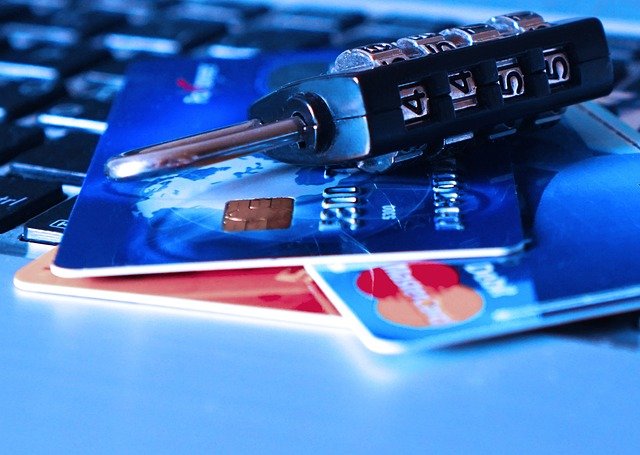Fraud Protection? What Seniors Are Exploring for Online and Phone Safety
Scams targeting seniors from fake tech support calls to car warranty fraud—are becoming more common. This article explores what older adults are doing to stay informed and protected, including fraud monitoring tools, scam prevention services, and practical steps after a data breach or suspicious call.

What services help monitor for fraud and identity theft?
As seniors become more tech-savvy, they’re turning to various services to help protect their personal information and finances. Credit monitoring services like Experian and TransUnion offer real-time alerts for any changes to credit reports, potentially catching identity theft early. Many banks now provide free fraud monitoring for their customers, alerting them to suspicious transactions or account activity.
Identity theft protection services such as LifeLock and Identity Guard go a step further, offering not just monitoring but also recovery assistance if identity theft occurs. These services typically include dark web monitoring, scanning for personal information being sold online, and insurance to cover financial losses from identity theft.
How should seniors respond after receiving a scam call?
When faced with a suspicious call, seniors are learning to take immediate action. The first step is to hang up without engaging with the caller. Many are now using call-blocking apps or features on their smartphones to reduce the number of scam calls they receive. After hanging up, it’s crucial to report the call to the Federal Trade Commission (FTC) through their website or hotline.
Seniors are also being encouraged to share information about scam calls with friends and family, creating a network of awareness. Some are even keeping a log of suspicious calls to help identify patterns and report to local authorities if necessary.
What steps should be taken if personal information is leaked?
In the event of a data breach or personal information leak, seniors are advised to act quickly. The first step is to change passwords for all online accounts, especially those related to financial services. Many are now using password managers to create and store strong, unique passwords for each account.
Placing a fraud alert on credit reports with the three major credit bureaus (Equifax, Experian, and TransUnion) is another crucial step. This makes it harder for identity thieves to open new accounts in the senior’s name. Some are taking the extra precaution of freezing their credit reports, which prevents new accounts from being opened altogether.
What tools and support services help prevent repeat scams?
To prevent falling victim to repeat scams, seniors are exploring various tools and support services. Many are installing antivirus software and keeping their devices updated to protect against malware that could compromise their information. Some are using virtual private networks (VPNs) when accessing the internet on public Wi-Fi to encrypt their data.
Support services like AARP’s Fraud Watch Network provide resources and updates on the latest scams targeting seniors. Local senior centers and libraries often offer workshops on digital literacy and scam prevention, helping older adults stay informed and protected.
How are seniors adapting their cell phone usage for better security?
In Worldwide, seniors are becoming more savvy with their cell phone usage to enhance security. Many are now using two-factor authentication for their important accounts, adding an extra layer of protection beyond just a password. Some are exploring apps specifically designed for seniors that offer simplified interfaces with built-in security features.
Seniors are also learning to be more cautious about the apps they download, sticking to official app stores and reading reviews before installation. Many are now aware of the importance of regularly updating their phone’s operating system to patch security vulnerabilities.
What are the most effective fraud protection services for seniors?
| Service | Provider | Key Features |
|---|---|---|
| Identity Guard | Identity Guard | AI-powered monitoring, $1 million insurance, dark web scanning |
| LifeLock | Norton | Credit monitoring, identity restoration, Norton 360 security |
| Complete ID | Costco/Experian | Credit monitoring, identity restoration, child protection |
| Experian IdentityWorks | Experian | Credit monitoring, dark web surveillance, lock/unlock credit file |
| IDShield | LegalShield | Credit monitoring, social media monitoring, licensed private investigators |
Prices, rates, or cost estimates mentioned in this article are based on the latest available information but may change over time. Independent research is advised before making financial decisions.
These fraud protection services offer a range of features tailored to seniors’ needs. Identity Guard utilizes artificial intelligence to monitor for potential threats, while LifeLock combines identity protection with Norton’s antivirus capabilities. Complete ID, available through Costco, provides comprehensive monitoring at a competitive price for members. Experian IdentityWorks and IDShield offer unique features like credit file locking and access to private investigators, respectively.
In conclusion, as the digital landscape evolves, so do the strategies seniors employ to protect themselves from fraud and scams. By utilizing a combination of monitoring services, proactive measures, and ongoing education, older adults are taking significant steps to safeguard their personal information and financial well-being in the digital age.




